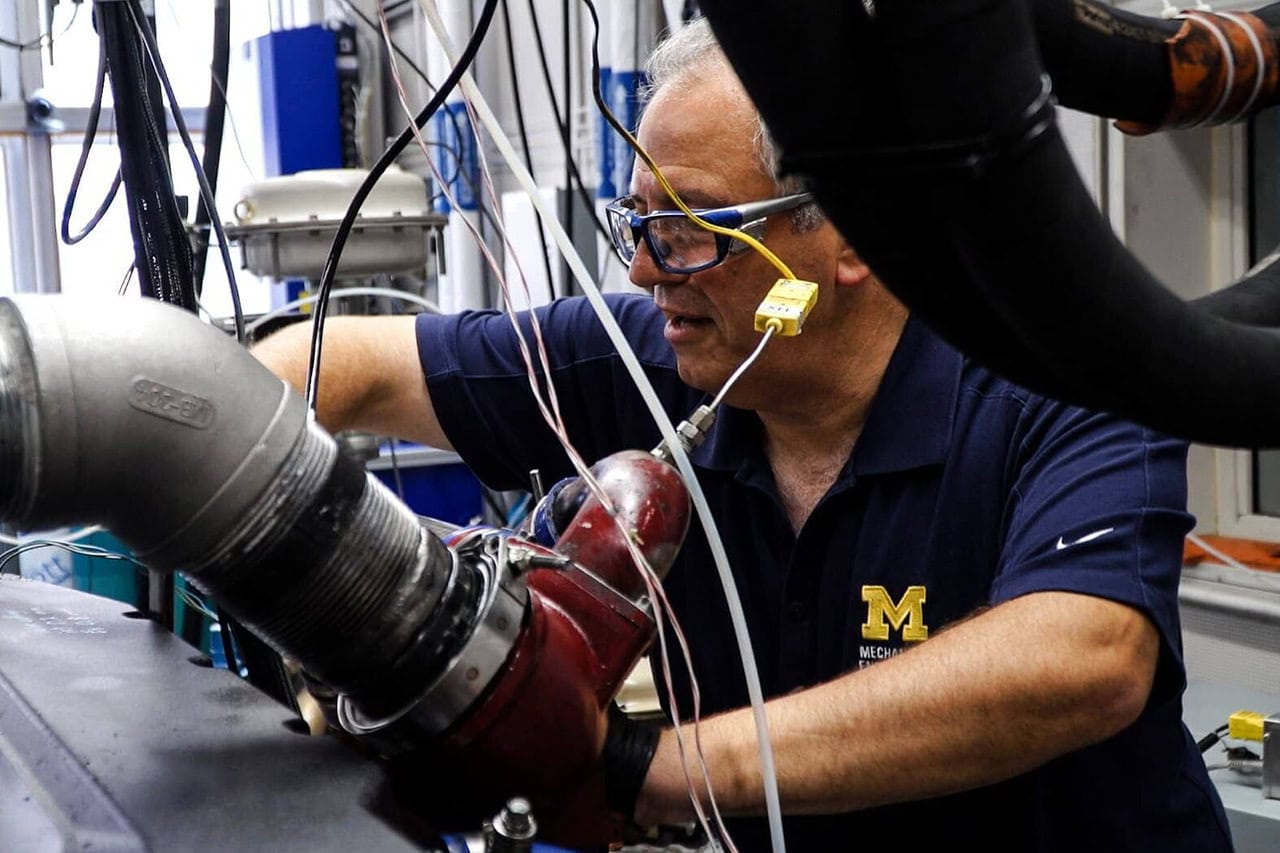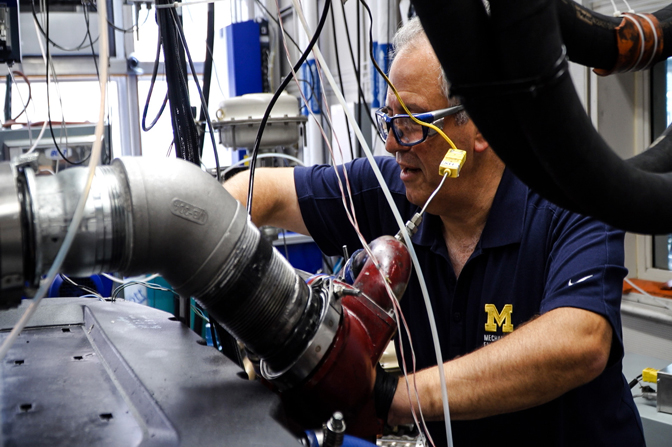
Reimagining the auto lab
Researchers in the Walter E. Lay Automotive Engineering Laboratory are investigating engine efficiency, alternative and low carbon fuels, connected and autonomous vehicles and vehicle electrification.

Researchers in the Walter E. Lay Automotive Engineering Laboratory are investigating engine efficiency, alternative and low carbon fuels, connected and autonomous vehicles and vehicle electrification.
The Walter E. Lay Automotive Engineering Laboratory, which opened in 1957, can trace its roots to a wooden shed in the early 1900s. For more than a century, it has played an important role in developing both technology and people. In the 1920s and ‘30s, researchers there conducted early studies on engine cooling and reliability as well as the simplification of engine components. In the ‘70s, it enabled pivotal work on improving fuel efficiency.
In the late 1980s, the Auto Lab made engineering real for Justin Mirro (BSE ME ’91), then a junior studying mechanical engineering. He used the lab to help design and build Sunrunner, the U-M Solar Car Team’s first vehicle and the winner of a national championship.
Today, Mirro is the founder and president of Kensington Capital Partners, an investment firm focused on the transportation sector, particularly electric vehicle technology and infrastructure. He has given a gift to re-imagine and renovate the lab, which will help it drive the auto industry toward a more sustainable and equitable future.
“It took me a couple years to find my footing in engineering,” Mirro said. “In the beginning, it was a lot of theory. It wasn’t until my junior year in the Lay lab where I could take that theory and put it to practice—I could translate my studies into something that was being used in the real world. I found that very rewarding.” After spending the last 25 years on Wall Street, the Michigan native and self-professed “car guy” wants to help ensure that the current generation of students has access to the state-of-the-art tools and
hands-on education that touched off his career.

Today, researchers in the lab are pursuing research in engine efficiency, alternative and low carbon fuels, connected and autonomous vehicles and vehicle electrification. The lab has gradually added capabilities for testing hybrid powertrains, fuel cells and batteries, and Mirro wants to accelerate that evolution as the push toward electrification gains
momentum. His gift will enable the lab to advance the development of safer, longer-lasting and more sustainable batteries in electric vehicle, grid, building and micro-mobility applications.
“The Lay lab is an amazing resource, and it was an inspiration for me,” Mirro said. “I want to help modernize it so students, professors and industry can develop their passion and knowledge, especially in the battery space. On a personal level, I have three daughters (who are all engineers) and I want to make sure that we leave the world cleaner and
better for the next generation.”